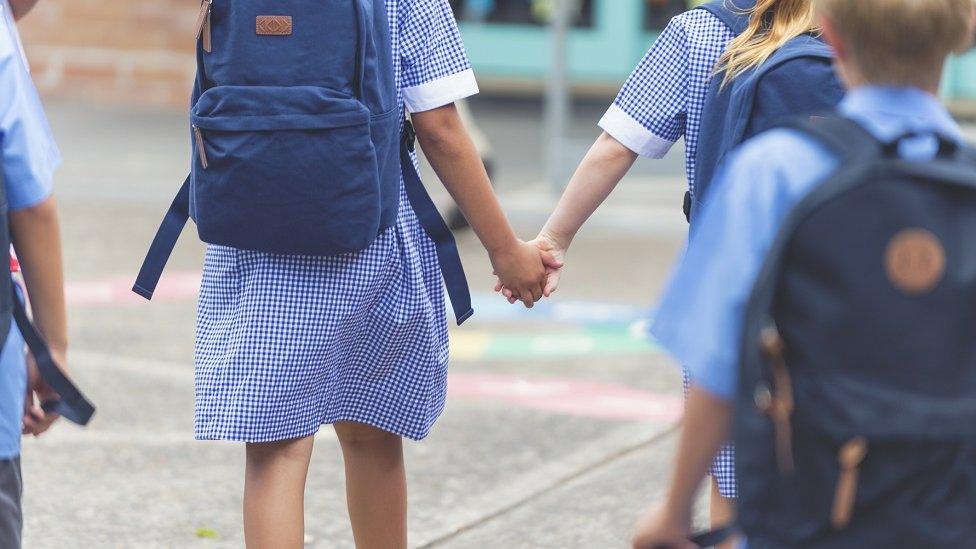Coronavirus: Key workers revealed ahead of school shutdown
- Published
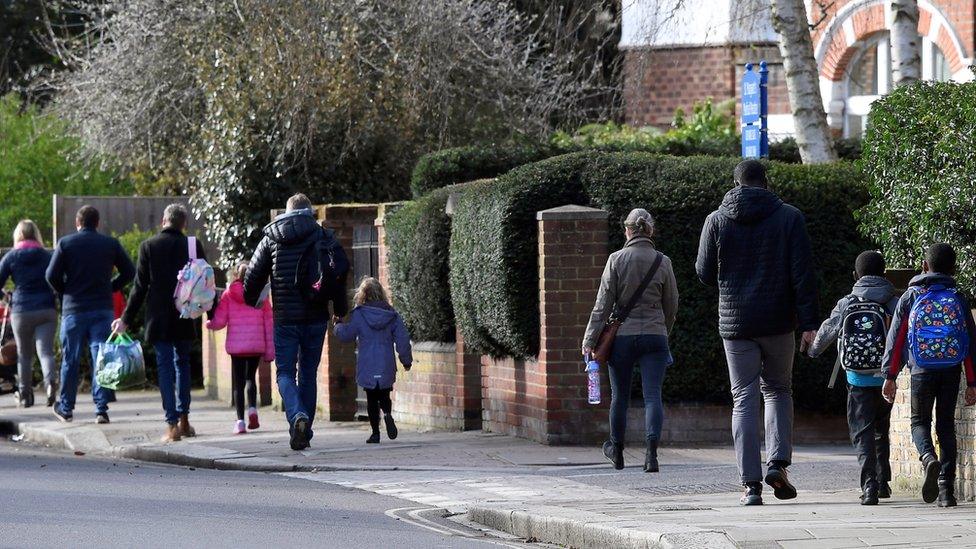
Friday has been the last school day for most children in England, Scotland and Wales until further notice, in response to the escalating coronavirus pandemic.
Schools are closing to everyone except vulnerable children, and those with a parent identified as a key worker., external
A-level and GCSE pupils will be graded via teacher assessments after exams, including Highers, were cancelled.
There have been 167 deaths in England, six in Scotland, three in Wales and one in Northern Ireland.
The latest 39 patients in England to die after being infected with Covid-19 were aged between 50 and 99 years old and had underlying health conditions, NHS England said on Friday.
Meanwhile, more than 65,000 retired doctors and nurses in England and Wales have been asked to return to work in the NHS to help tackle the outbreak.
And the chancellor is set to announce a wage subsidy package to try to protect millions of jobs.
As of 09:00 on 19 March, 64,621 people had been tested in the UK, of which 3,269 were confirmed positive for the virus.

A SIMPLE GUIDE: What are the symptoms?
GETTING READY: How prepared is the UK?
MAPS AND CHARTS: Visual guide to the outbreak
PUBLIC TRANSPORT: What's the risk?

The government has published a list of key workers, external whose children can still go to school if they cannot be looked after at home. These workers' jobs are considered "critical" for the response to the pandemic.
The list has been separated into eight categories, including frontline health workers and social care staff, nursery and teaching staff and those involved in food production and delivery.
It also includes the police, those in key public services, transport workers and critical staff in financial services and utilities.

Analysis by Hannah Richardson, BBC Education reporter
Anyone who thinks the emergency schools due to open on Monday will run like the regular ones is very wrong.
They will instead be a patchwork of available teachers, support staff and pupils whose parents find themselves lucky enough to be on the key workers' list.
They will not be following a specific curriculum, there will be no working towards exams and pupils are unlikely to be taught in their own year groups.
How many pupils each school can accommodate will be a daily moving picture as staff continue to fall ill.
And head teachers will have to make some tough decisions about who can come into class - and sometimes their decisions will not be popular.
One spoke of arguing with a father who asked for a place because he worked in McDonald's, others in more obviously frontline jobs have also been disappointed.
On the up side, the lucky ones may have a chance to learn in new and different ways, while their former classmates grapple with online learning from home.

Northern Ireland Education Minister Peter Weir has said all schools should be prepared to cater for key workers' children when schools shut across the region on Monday.
Nurseries, colleges and childminders will also close from Friday.
Most local governments have indicated schools may not reopen properly until the end of the summer.
A-level and GCSE exams are being cancelled, as well as Scottish Highers.

Who are "key workers"?
The full list includes:
Frontline health workers such as doctors and nurses
Some teachers and social workers
Workers in key public services including those essential to the justice system, religious staff and public service journalists
Local and national government workers deemed crucial to delivering essential public services
Workers involved in food production processing, distribution, sale and delivery
Public safety workers including police, armed forces personnel, firefighters and prison staff
Essential air, water, road and rail transport workers
Utilities, communication and financial services staff, including postal workers and waste disposal workers

Dr Mary Bousted, joint general secretary of the National Education Union, said: "This is a very long list and could result in some schools having the majority of pupils attending.
"Schools can only accommodate a limited number of children and the fewer children making the journey to school, and the fewer children in educational settings, the lower the risk that the virus can spread."
The government stressed that "every child who can be safely cared for at home should be" and asked workers to consult their employers to confirm whether "their specific role is necessary".
Vulnerable children, who will also be exempt, include those who have a social worker and those with special educational needs. The Department for Education said it would help local authorities identify those "who most need support at this time".
The government has encouraged local authorities to keep residential special schools and specialist colleges open wherever possible.
School leaders said the list of key workers was "perhaps more extensive than we might have expected".
"We are going to have a real challenge matching resource with demand," said Andy Dickenson, headteacher at The Chantry School in Worcestershire.
"What we are going to be doing is providing childcare, not school," he told BBC Radio 4's Today programme.
Meanwhile, the Department for Education aims for pupils in England to be awarded the calculated grades - which will consider their previous achievements such as mock exams and other school work- by the end of July.
The new exams guidance will ask teachers to submit their views about the grades they believe their students would have earned had their exams gone ahead.
But students will also have the option to sit an exam early in the next academic year - which starts in September - or they can appeal against their calculated grade if they feel it does not reflect their performance and choose to sit exams next summer.
Education Secretary Gavin Williamson said on Friday these are "extraordinary times" and that exam boards would be working "closely" with teachers to implement the new system.
"We're all just wondering at the moment if it's worth revising for anything," Aurelia, a 17-year-old A level student told the BBC.
"Are we going to be sitting anything later in the year? Will we be given our predicted grades? Or will they be affected by our mock exams.
"I do have a lot of anxiety about it.
"I would feel a lot better about everything if we had some clarity as to how we will be graded, so I can start planning better for my future."
Retired medics appeal
Meanwhile, Health Secretary Matt Hancock has said he hoped "many, many thousands will respond" to letters being sent to former doctors and nurses in England and Wales asking them to rejoin the NHS.
In Scotland, anyone who left the medical profession during the past three years has also been asked to consider returning.
Senior officials have said the ex-employees are needed to boost frontline services.
Question Time: How can NHS, students and businesses be supported?
Asked when the former medics would be able to start, Mr Hancock told BBC Breakfast those who left most recently could return "straight away", while others will be given refresher training "over the next couple of weeks".
Conservative MP Maria Caulfield, a former nurse, has said she will swap Westminster for the hospital ward - tweeting that it is "important we all help where we can".
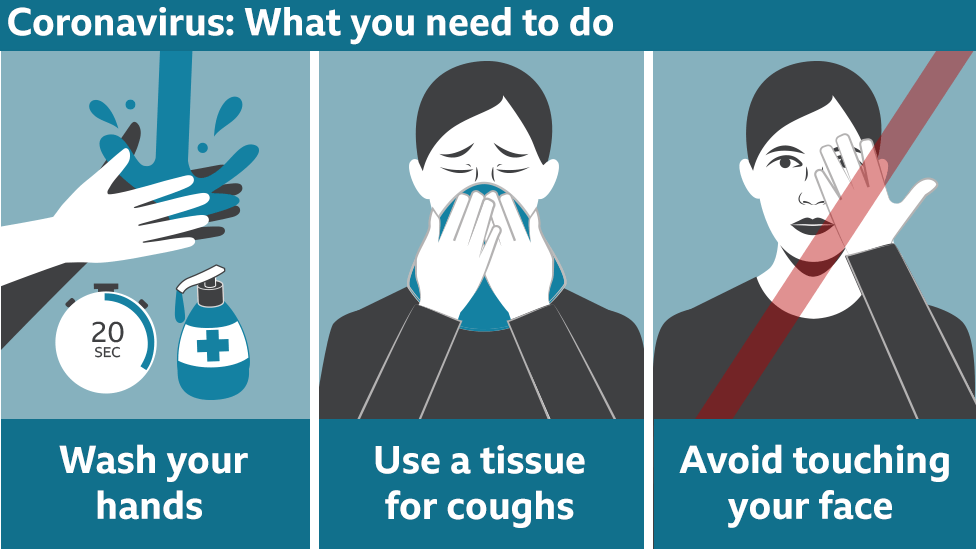
In other key developments in the UK:
Chief EU negotiator David Frost is self-isolating after showing symptoms of the coronavirus, Downing Street has confirmed
Trials of a coronavirus vaccine could begin within the next month, Public Health England has said
A man has been arrested for allegedly failing to self-isolate after arriving on the Isle of Man
Military leaders have been told by the head of the armed forces to be ready by the middle of next month to help respond to the pandemic, in guidance seen by the BBC
Ministers are asking phone operators if they can use mobile data to help monitor whether people are following social distancing advice
Train operators across Britain will gradually reduce services from Monday
Jaguar Land Rover, is to join Nissan and Vauxhall in suspending production at its UK plants
The Changing of the Guard ceremonies at Buckingham Palace, St James's Palace and Windsor Castle have been postponed "with a view to restarting when appropriate"
In other key developments around the world:
Italy's death toll rose by 427 to 3,405, overtaking China's toll
Argentina has become the first country in South America to ban all citizens from leaving their homes except to buy food and medicines
An estimated 400 British nationals are among those stranded in Peru, after the country closed its borders and flights were suspended
California, the most populous US state, has issued a "stay at home" order to residents
Globally, the number of confirmed cases has passed 220,000, with more than 9,000 deaths

Are you one of the key workers? Share your experiences by emailing haveyoursay@bbc.co.uk, external.
Please include a contact number if you are willing to speak to a BBC journalist. You can also contact us in the following ways:
WhatsApp: +44 7756 165803
Tweet: @BBC_HaveYourSay, external
Send pictures/video to yourpics@bbc.co.uk, external
Please read our terms & conditions and privacy policy
- Published19 March 2020
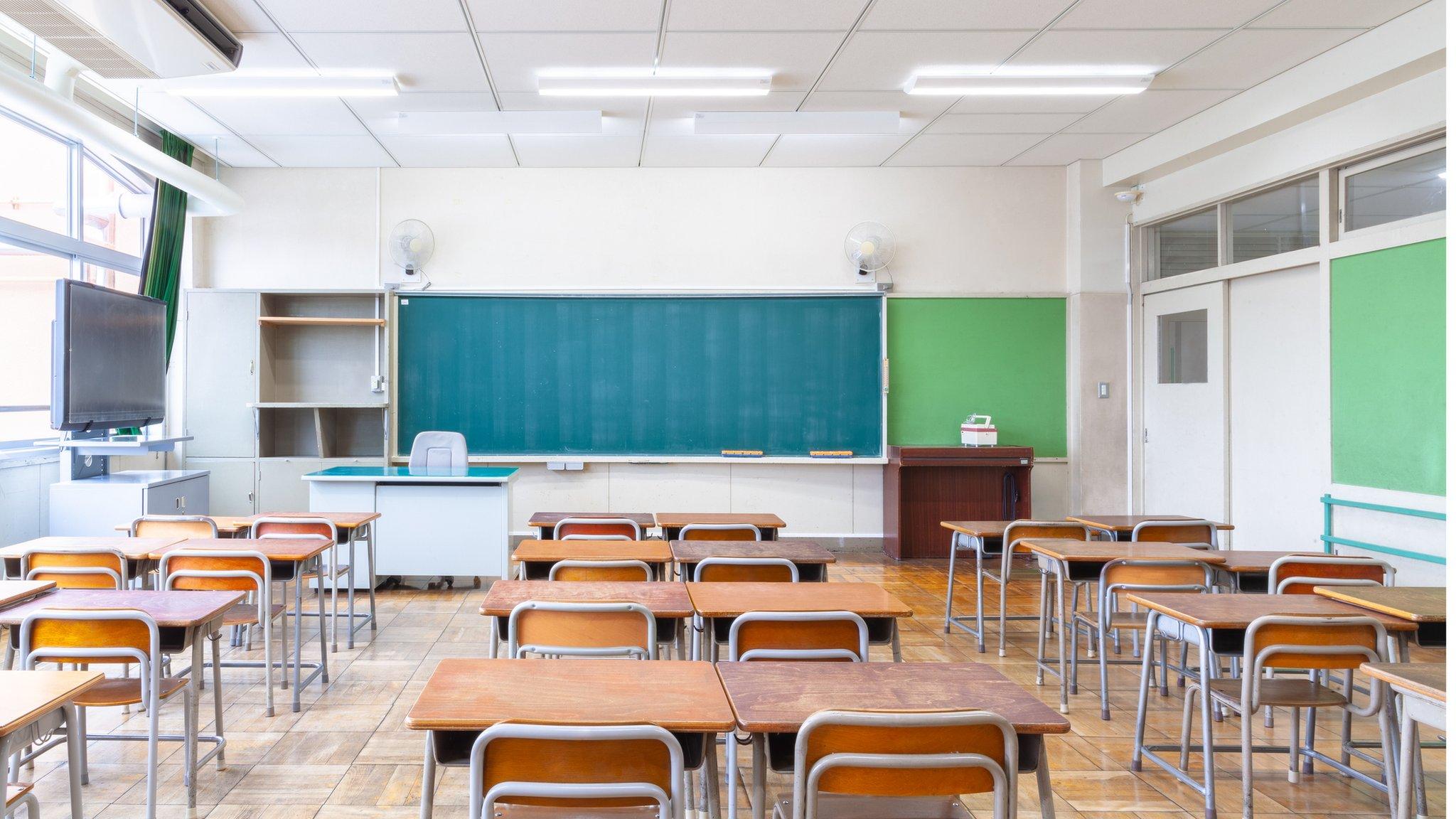
- Published18 March 2020
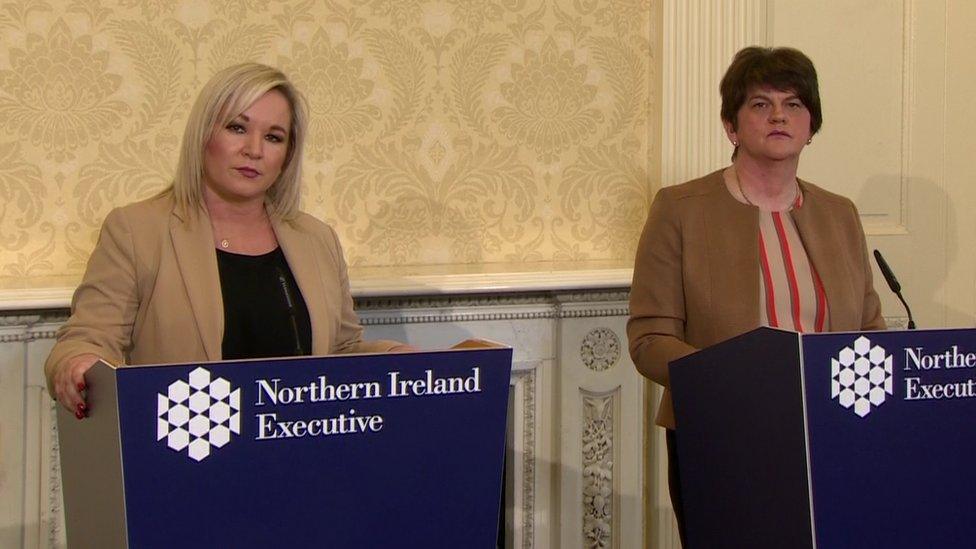
- Published20 March 2020
